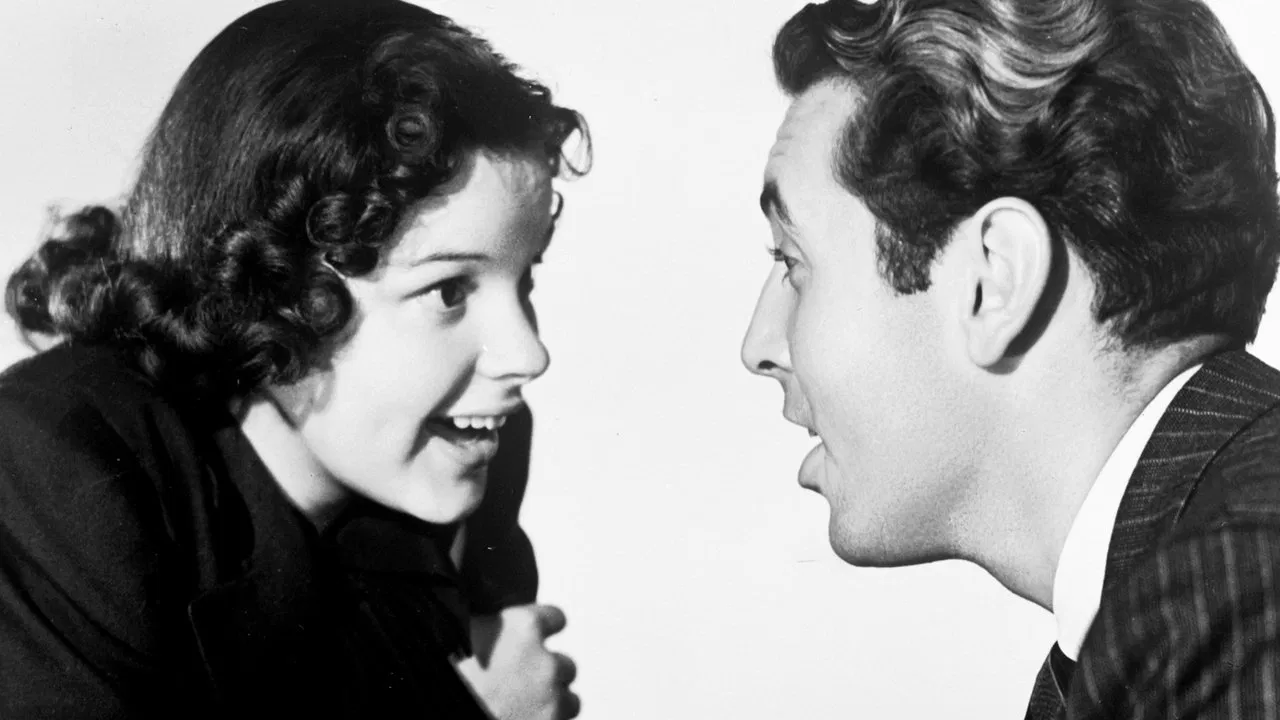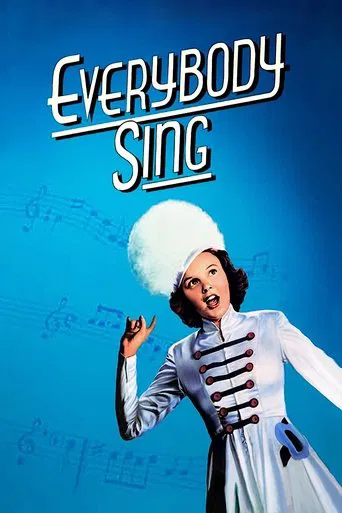

Not quite as good as some Judy movies. Judy is wonderful here as always which saves the film from me giving it a lower number. That and a funny, wacky baby snooks routine with Fanny Brice. If a scene like that came in a more modern movie, I'd have found it stupid and annoying. But cause its 30s movie style, and I like Fanny Brice, the scene was actually pretty quirky and amusing. Old movies just knew how to do silly wacky comedy better than films today. Look at Larual and Hardy. Judy's sister Sylvia is on a date at a dinner theater club when Judy shows up on stage. "Hey, it's Judy" Sylvia exclaims. Yes, it was Judy. Judy's name in this film was Judy. I liked that. And Judy as always sang beautifully. Her song "Down on melody farm" she sings at the dinner theater club is great. So is her song "Swing Mr. Meddleson, swing" she sings at the beginning of the film at school right before being thrown out. The song Judy and the stage girls sing in the show after the baby snooks number is also very nice. So is the finale song. And I also liked Sylvia. Now for the couple of problems of the film. First, I really don't like the blackface routine. Like in "babes on Broadway", the director made Judy do a blackface routine in this film. I enjoy many things about old movies but not blackface routines. She sings " swing low, sweet chariot" while in blackface. Also, I did not care for the two parent characters in this film, Reginald Over and Billy Burke. They just yelled and whined too much and were just too worked up, in every scene they were in. Billy Burke had such a sweet, likable role the following year in 'Wizard of oz" as Glenda the good witch. But in this film, she was far less likable. And at one point, Billy Burke called Judy, her daughter "my ugly duckling". Not right. Especially since Judy Garland has never been ugly, and was called " ugly duckling" by Louis B. Mayer in real life. That poor girl didn't have to hear it as part of the script in a film too. Reginald and Billy were both nice in only the very last minute of the film when they got on stage and hugged their family for a job well done.
... View MoreThis is actually a very good film. I gotta wonder what others are complaining about. Okay there is some dated humor. Some pre WWII Russian humor which is prevalent in some 30's films before cold war cast them as the enemies. What's great about this movie, Judy Garland is in her typical personal problem solving mode. Trying to help her own family in distress. Of course playing the part of a young girl she may be making a little more of the problem that what's happening. But apparently the performing family hasn't been putting out real work. So they are in need of a financial rescue. What is great about this movie. Well the script isn't very tight, because at times a song just happens because people are happy. Nothing wrong with that for die hard musical lovers. What makes this film great. Well look at Judy's father, he's such an overblown ham and takes himself too seriously. All the "important" actors in the family who are supposed to be great (in their own eyes) are just hams. And they are in need of rescue. Whereas the "regular" folks who are supposed to be the underclass, Judy and the help are the ones to break into the big time to save the family. It's really great, everyone plays there part really well and if you get to watch these players play other parts, for example watch "THE GOOD FAIRY" before watching this and check out the same actor who plays Judy's father, plays a butler in that movie. It's really a great film. Now later films were a little more tight with their plots and the music may have fit the action more. A little less, "Broadway melody" style of musical. In the 30s movies often did musical themes because they tied into "getting on the stage", etc. A simple plot that was in many early musicals, even Fred Astaire movies. So this is a common theme and one in early musicals. I could watch this again and again, and I have. For those of you lucky enough to have a Laserdisc copy, this like many other 30s musicals is a treat to watch on laser disk.I'm giving it an 8, but in some ways it's almost a 10 for the repeatable enjoyment factor.
... View MoreAs she sang in a Hardy Family movie, Judy was just an "in-between" when her first few movies were made: "too old for toys, not old enough for boys". What plot there is, is an excuse for the musical numbers, most of which are rather lifeless. MGM seemed to be trying to find some place for players under contract, such as Alan Jones and Fannie Brice. Jones is as wooden here as in every other one of his MGMs, this time without the Marx Brothers to detract attention. Fannie Brice was just not a film personality. For someone who remembers her Baby Snooks radio show as quite entertaining, the Snooks routine here is almost embarrassing. Judy was not given any songs in which she could reveal her personality. The last scene was (unintentionally, I suppose) comical, when the entire cast, including Reginald Owen and Billie Burke. simulate a group dance number. This one is only for Garland die-hards interested in her early work. (Actually, she is much more natural in her first feature: Pigskin Parade, since not all the weight is on her shoulders.
... View MoreThis is very fun Judy Garland movie before "Oz". It's neat to see Judy in so much trouble! I enjoyed seeing Billie Burke in this before she became immortalized as Glinda in "Oz" also. All the actors give fine performances, and it's a rare treat for Fanny Brice to be in this film. She is hilarious as the Russian maid. Judy steals every scene she's in! Allan Jones also was superb. I am a big Judy Garland fan, so this might seem biased! Sure, the Baby Snooks number might seem a little corny, but overall, I give this 9/10, because I wanted it longer!
... View More